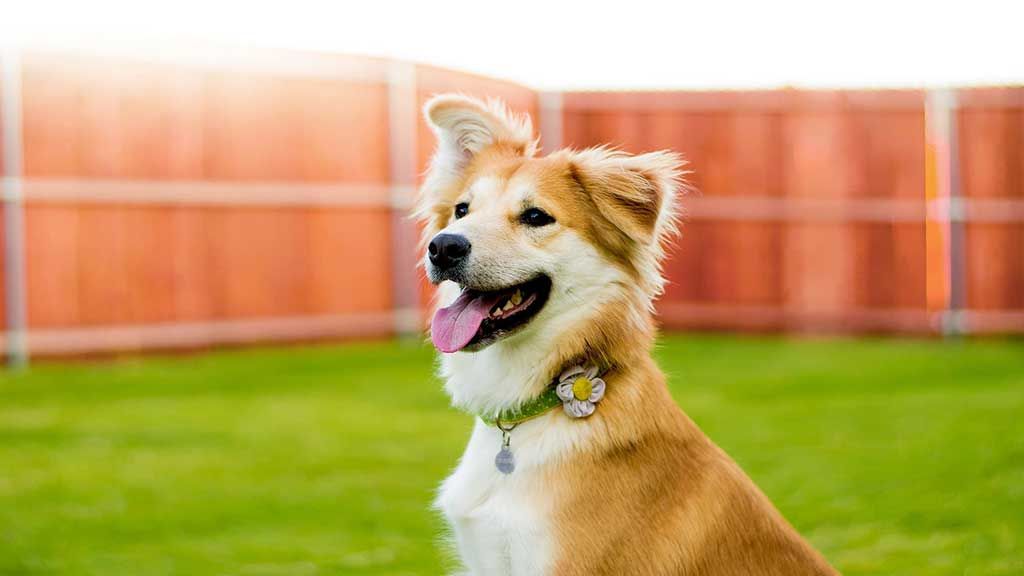If you’re a dog owner, you may be wondering can dogs eat deviled eggs?
The answer is yes, dogs can eat deviled eggs! However, you should only give your dog a small amount of deviled eggs and watch them for any signs of stomach upset.
Deviled eggs are a great source of protein and vitamins, but they also contain fat and cholesterol. So, while they’re safe for dogs to eat, you should only feed them in moderation because their frequent consumption can lead to weight gain, gassiness, and other digestive problems.
Keep on reading to know more about dogs and Deviled Eggs as we have compiled everything you need to know about this matter.
So let’s get started!
What Are Deviled Eggs?
Deviled eggs are a delicious and classic appetizer that have been a favorite among cooks for generations.
They are typically made by peeling hard-boiled eggs and scooping out the yolks, which are then mixed with mayonnaise and other flavorings to create a creamy, flavorful filling.
The yolk mixture is then piped back into the egg whites, and garnishes such as chopped herbs or paprika are often added on top.
Deviled eggs make the perfect starter for any meal, whether they’re served at a fancy dinner party or a casual gathering with friends.
With their combination of texture, flavor, and simple elegance, they are truly a delight that everyone can enjoy!
Can Dogs Eat Deviled Eggs?
Yes, but in moderation and as a treat only
As mentioned earlier, dogs can eat deviled eggs. However, you should only give your dog a small amount as their frequent consumption may lead to weight gain, gas, and other digestive problems.
Moreover, as it contains Paprika spice, it can also irritate your dog’s stomach, your dog’s nasal passages, or their respiratory system. In severe cases, it can also be toxic for your dog.
That being said, it’s best to only serve your dog deviled eggs as a special treat.
You should also keep an eye on them for any signs of stomach upset such as vomiting or diarrhea.
If your dog does seem to be having any problems, it’s best to stop giving them deviled eggs and consult your veterinarian.
Are There Any Benefits Of Feeding Deviled Eggs To Dogs?
Yes, there are several benefits to feeding dogs deviled eggs. Not only are they a tasty and filling treat, but they also contain lots of important vitamins and minerals that can be beneficial for your dog’s health.
Some of these benefits include:
They are a great Source Of Protein
Protein is important for your dog’s overall health, as it helps keep their muscles and bones strong. They also help maintain healthy skin and fur.
They Contain Vitamins and Minerals
Deviled eggs contain many important vitamins and minerals, including calcium, phosphorus, iron, If your dog is lacking in protein, they may suffer from malnutrition, which can lead to a host of health problems.
Helps Improve Joint Health
Eggs contain high levels of chondroitin and glucosamine, which are important compounds that help keep your dog’s joints healthy. If your dog is suffering from joint pain or arthritis, feeding them deviled eggs can help provide relief.
Helps With Weight Loss
Eggs are a filling and low-calorie snack, which makes them an ideal food for dogs who need to lose weight. They are also a good source of protein, which can help your dog feel fuller for longer.
Help With Allergies
If your dog is allergic to chicken, feeding them deviled eggs can help provide them with the nutrients they need without triggering an allergic reaction.
Improves overall Health
As mentioned earlier, eggs contain many important vitamins and minerals that are important for your dog’s overall health. In addition to providing them with these nutrients, deviled eggs can also help boost your dog’s immune system.
What Are The Disadvantages Of Feeding Deviled Eggs To Dogs?
While there are several benefits to feeding dogs deviled eggs, there are also some potential disadvantages.
Some of these include:
Salmonella
While the risk of salmonella is very low for dogs, the eggs used in deviled eggs are often not pasteurized and can contain harmful bacteria. If your dog consumes raw eggs, they may develop a serious bacterial infection that can be difficult to treat.
Allergies
As mentioned earlier, some dogs may be allergic to chicken. If your dog is allergic to chicken, feeding them deviled eggs can cause a serious allergic reaction.
Listeria
If the eggs used in deviled eggs are not cooked properly, they can contain harmful bacteria such as listeria. If your dog consumes food that is contaminated with listeria, they may develop a serious infection that can be life-threatening.
Weight Gain
While eggs are a low-calorie food, deviled eggs do contain more calories than plain eggs. While the occasional treat won’t harm your dog, it’s best to limit them if your dog is overweight.
Gas and Bloating
Eggs are a common cause of gas and bloating in dogs. If your dog eats too many eggs, they may experience these symptoms.
Digestive Problems
Eggs are high in fat and cholesterol, which can lead to digestive problems in some dogs. If your dog has a sensitive stomach, it’s best to avoid feeding them deviled eggs.
Coli
If the eggs used in deviled eggs are not washed properly, they may contain harmful bacteria such as E. coli. This can lead to a serious infection that can be life-threatening.
What Is The Best Way To Feed Deviled Eggs To Dogs?
There is no definitive answer to the question of how best to feed deviled eggs to dogs, as different dogs may have different preferences and dietary needs.
However, some general principles can be applied to ensure that you are providing your dog with high-quality protein in an enjoyable and safe way.
For one, it is generally advisable not to give your dog foods that are too rich or spicy, as this may lead to digestive issues or other discomforts.
Instead, a simple mix of egg yolks and some natural herbs and spices will likely be well-tolerated by most dogs.
Make sure the eggs are well cooked and for that Hard-boil the eggs before feeding them to your dog for around 10 minutes at around 70°C (160°F) so that any harmful bacteria are killed and your dog does not get sick.
Some people also like to add in things like peanut butter or tuna to make the eggs more appealing to their dogs, although these should be kept as occasional treats rather than a staple of your dog’s diet.
Additionally, it is often best to feed deviled eggs in small portions over the course of the day rather than all at once.
This will help prevent stomach upset while also encouraging appropriate portion control on the part of both owners and pets.
Overall, while there is no single “best” way to feed deviled eggs to dogs, incorporating these tips into your feeding routine will help ensure that your canine companion enjoys every bite!
What Are The Best Eggs For Dogs?
There are many different types of eggs that you can feed your dog, but not all of them are created equal.
While chicken eggs are the most popular, there are other egg types that you can give to dogs. These include duck eggs and quail eggs, which are packed with nutrients that can benefit your pet.
When it comes to feeding eggs to dogs, it’s best to go for organic, free-range options. These eggs will be more nutritionally beneficial and safer to eat.
However, there are some eggs that you should never give your dog. These include deviled eggs, which contain spicy ingredients like mustard and hot sauce.
If your dog ingests these eggs, they may experience stomach upset or gastritis.
If you’re not sure whether a particular egg is safe for your dog, it’s always better to talk to a veterinarian. With the right knowledge, you can feed your dog eggs in a safe and healthy way.
How Many Eggs Should A Dog Eat Every Day?
Dogs are not people, and as such, their nutritional needs are different.
They require a diet that is high in protein and fat, and low in carbohydrates.
Eggs are an excellent source of protein and fat, and they also contain a variety of vitamins and minerals. For most dogs, one or two eggs per day is plenty.
However, puppies and dogs with higher energy needs may require more. If you are unsure how many eggs to feed your dog, ask your veterinarian for guidance.
In general, it is better to err on the side of too few eggs than too many. Too much protein can lead to health problems, so it is important to be careful when adding eggs to your dog’s diet.
When To Avoid Feeding Your Dog Deviled Eggs
Deviled eggs should not be fed to dogs with the following issues or conditions:
Gastritis Or Stomach Upset
The spicy ingredients in deviled eggs can irritate the gastrointestinal tract and lead to digestive issues. If your dog has gastritis or is prone to stomach upset, it’s best to avoid feeding them deviled eggs.
Pancreatitis
The high fat content of deviled eggs can aggravate pancreatitis, so it’s best to avoid feeding them to dogs with this condition.
Egg Allergies
Some dogs are allergic to eggs, and these allergies can range from mild to severe.
If your dog is allergic to eggs, they may experience itching, swelling, vomiting, or other symptoms.
It’s best to avoid feeding them deviled eggs, or any other type of eggs if you suspect that they may be allergic.
Pregnant Dog
Pregnant dogs should not eat deviled eggs, as the high fat content can lead to obesity and other health problems.
Dogs With Diabetes
Eggs are high in protein and fat, which can make them difficult to digest for dogs with diabetes. It’s best to avoid feeding them deviled eggs, or any other type of egg, if your dog has this condition.
Overweight Dogs
Dogs that are overweight or obese should not eat deviled eggs, as the high-fat content may lead to weight gain.
If your dog is overweight, talk to your veterinarian about the best way to help them lose weight.
Can Sick Dogs Eat Deviled Eggs?
Sick dogs can eat deviled eggs but its best you should avoid it in this case. If you dog is not feeling well and they have an upset stomach or gastritis, it’s probably best to avoid feeding them deviled eggs.
Can Dogs With Flu Eat Deviled Eggs?
It is a common myth that dogs with the flu should avoid all foods that could potentially cause them any discomfort or pain.
While it’s generally true that dogs with flu or other health conditions should be monitored carefully for the effects of certain foods, there are some exceptions. For example, many dogs seem to tolerate deviled eggs just fine, even if they have the flu.
In fact, some experts believe that this may be because deviled eggs are rich in protein and nutrients that can help to support the dog’s overall health and immunity.
So if you’re looking for a delicious treat for your pup, don’t be afraid to offer them a bite of your deviled egg! After all, there’s no harm in letting your dog enjoy this popular springtime snack.
Can Dogs With Sensitive Stomach Eat Deviled Eggs?
There is some debate about whether or not dogs with sensitive stomachs should eat deviled eggs.
Some people claim that these spicy, savory treats are great for whetting a dog’s appetite and providing them with important nutrients.
Others argue that the mayo, mustard, and spices in deviled eggs can cause digestive discomfort and even trigger more severe health problems in dogs with sensitive stomachs.
The truth is that there is no definitive answer to this question.
Some dogs may tolerate deviled eggs just fine, while others could experience severe adverse effects such as vomiting, diarrhea, dehydration, or even pancreatitis.
Ultimately, it is up to you as a dog owner to decide if your pup should consume deviled eggs based on their individual sensitivities and medical history.
If your pet does seem to struggle with digesting these eggs or experiences persistent symptoms like diarrhea or stomach pain after eating them, it might be best to avoid them altogether.
However, if your canine companion tolerates deviled eggs well and enjoys having them as a treat on occasion, then they appear to be safe to consume in moderation.
At the end of the day, keeping an eye on your dog’s overall health and wellbeing will help you make the most informed decision when it comes to feeding them deviled eggs.
Can Elderly Dogs Eat Deviled Eggs?
There is no straightforward answer to the question of whether elderly dogs can eat deviled eggs.
On the one hand, egg whites are a common ingredient in many dog food and treat recipes, so it would seem that cooked eggs would be an acceptable food for older canines.
However, while eggs are generally safe for dogs to eat, they do contain avidin, which has been shown to actually inhibit the absorption of biotin.
Biotin is an important nutrient that helps facilitate normal cell function in the body.
As such, eating too many egg whites without introducing adequate amounts of biotin could cause serious health issues for older dogs.
Given these concerns, it is generally recommended that elderly dogs steer clear of deviled eggs and stick to more age-appropriate snacks instead.
How To Make A Dog-Friendly Version Of Deviled Eggs?
- To make a dog-friendly version of deviled eggs, start by hard-boiling some eggs and peeling them.
- Next, cut each egg in half and remove the yolks.
- Combine the yolks with some cooked ground turkey or beef, as well as some nutrient-rich ingredients like grated carrots, baby spinach, and finely chopped flaxseed.
- Mix everything together until you have a smooth paste, then use a spoon to scoop it back into the hollowed-out egg whites.
- If desired, you can sprinkle the finished deviled eggs with chopped parsley for an extra dose of flavor and health benefits.
Enjoy these dog-friendly snacks as a treat or even as part of your pet’s regular meals!
Conclusion
In the end, I hope with all the information given above now you are able to answer your question, Can Dogs Eat Deviled Eggs oe not, and what are the factors to be considered before giving them to your beloved dogs.
If you have any other doubts or queries, please feel free to leave a comment below and I’ll be more than happy to help!
Thanks for reading.
Welcome to my blog, where I share my love for all things canine! As an older lady who has spent a lifetime surrounded by dogs, I feel it’s important to share my experiences and the joy that these furry companions bring into our lives. From my first dog, a spunky little mutt, to the loyal and loving dogs who have been by my side throughout the years, each one has left an paw print on my heart. Through my blog, I hope to inspire others to appreciate the love, loyalty, and companionship that dogs bring. So come along on this journey with me as we celebrate the wonderful world of dogs!






